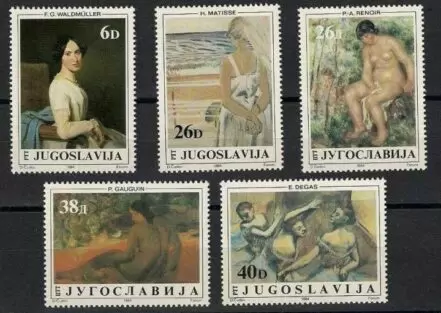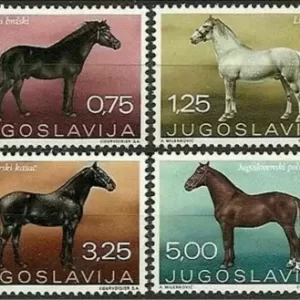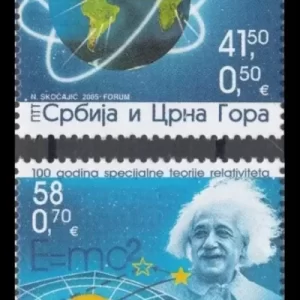Yugoslavia year 1978 Fauna stamps – Bees full set
1. Beekeeping Tradition: Beekeeping has a long history in the territories that later formed Yugoslavia. It was practiced by rural communities for centuries, providing honey, beeswax, and other bee products for consumption and trade.
2. Cultural Significance: Beekeeping held cultural significance in Yugoslav society, with traditions and customs surrounding honey production and beekeeping practices. Bees were often regarded with reverence and were considered symbols of fertility, diligence, and community cooperation.
3. Honey Production: Yugoslavia was known for its production of high-quality honey, which came from diverse floral sources found throughout the country’s varied landscapes. Different regions of Yugoslavia produced a variety of honey types, including acacia honey, chestnut honey, wildflower honey, and forest honey.
4. Economic Importance: Beekeeping was an important economic activity in Yugoslavia, providing livelihoods for thousands of beekeepers, particularly in rural areas. Honey and other bee products were not only consumed domestically but also exported to international markets, contributing to the country’s agricultural exports.
5. Pollination Services: Bees provided essential pollination services to agriculture in Yugoslavia, ensuring the reproductive success of many crops, including fruit trees, berry bushes, oilseed crops, and vegetables. Beekeepers often moved their hives to agricultural areas during bloom periods to enhance pollination and crop yields.
6. Research and Education: Yugoslavia had agricultural institutions and beekeeping associations dedicated to research, education, and outreach activities related to beekeeping. These organizations promoted bee health, improved beekeeping practices, and provided training and support to beekeepers across the country.
7. Conservation Challenges: Like in other parts of the world, bees in Yugoslavia faced threats such as habitat loss, pesticide exposure, diseases, parasites, and environmental pollution. Efforts were made to promote sustainable beekeeping practices and protect bee habitats to mitigate these threats.
In summary, beekeeping was an integral part of Yugoslavia’s agricultural heritage and economy, providing not only honey and other bee products but also pollination services essential for agricultural productivity. The tradition of beekeeping reflected the deep connection between humans and nature in Yugoslav society and contributed to the country’s cultural and culinary diversity.











Reviews
There are no reviews yet.